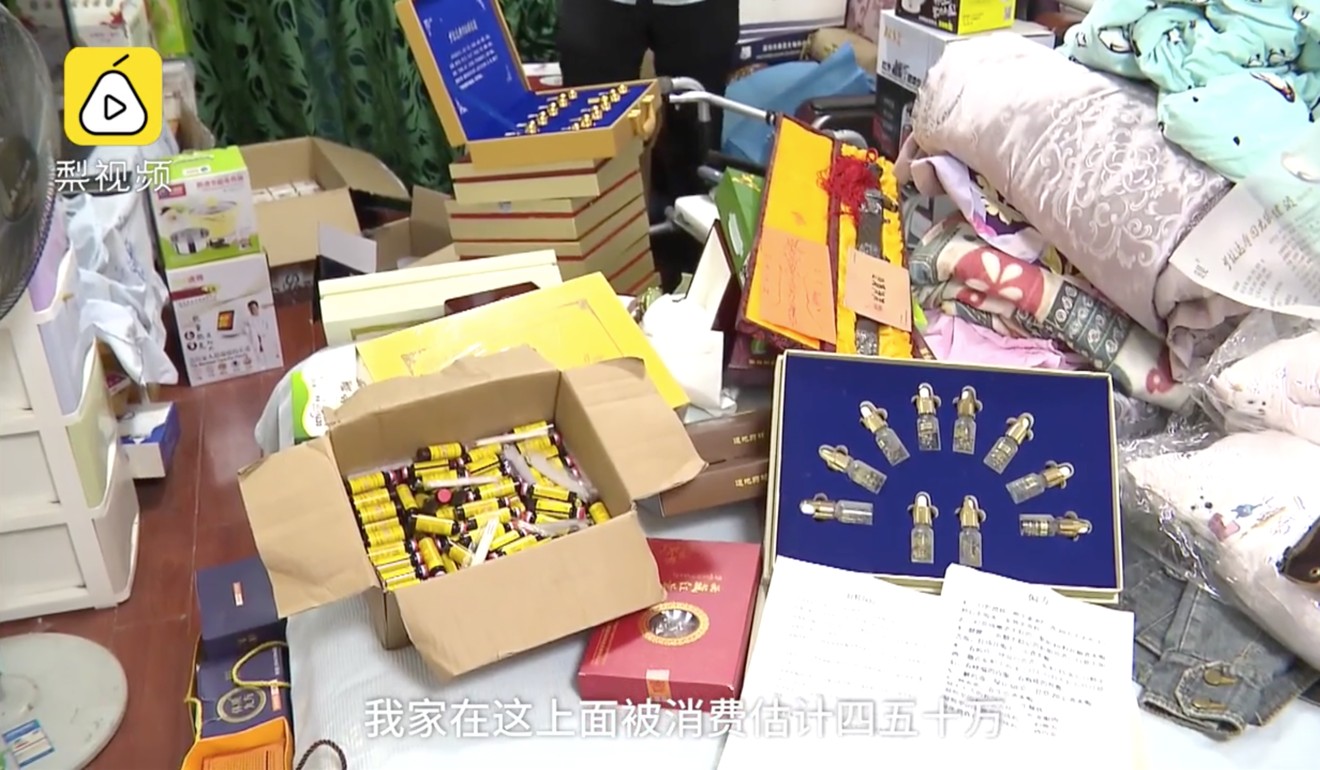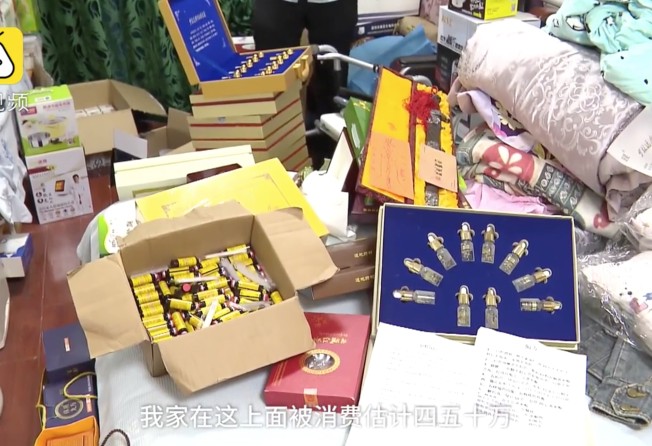
Chinese drug firms ‘brainwashed’ retiree into buying US$73,000 worth of health products
Shanghai pensioner says high-pressure tactics led to her spending vast sums on products

A retired woman in Shanghai has complained of being “brainwashed” into buying health products worth tens of thousands of US dollars due to high-pressure sales tactics.
The woman, surnamed Liang, told the video website Pearvideo.com she had attended many marketing events that targeted senior citizens and put attendees under intense pressure to buy products for the good of their health.
She suggested it was hard to resist when other people succumbed to the sales tactics.
“It’s all about brainwashing,” she told the site. “But everybody is buying.”
She said was lured to the events by sales staff who used various tricks to get people to attend.
Typically salespeople in the largely unregulated market offer all sorts of gifts, including food and cooking oil, to lure senior citizens to sales events.
But afterwards customers frequently complain that the products they bought cost too much and do not deliver the promised benefits.

Over the years Liang said she had spent around half a million yuan (almost US$73,000) on products such as high-calcium milk powder, drugs invented by a mainland top-level science research institution and plant-based supplements from Iran, according to her son.
The son, surnamed Hu, said: “These health product companies are not ethical. When my mother was sick, they still coaxed her to go to an event in Zhejiang [the neighbouring province].”
Liang said that during the three-day trip, the salespeople never stopped promoting their products and tried to persuade the tour group members that they needed to buy their products for the good of their health.
Hu said it was difficult to return these goods, due to the high threshold set by the companies for giving customers a refund.
“I’d like to remind the public to be alert to these companies and their products,” he said.
Complaints about the high-pressure sales tactics used by health firms are frequent among Chinese senior citizens.
Last year a 60-year-old man in the northeastern port of Qingdao was reported to have taken his own life after spending his life savings of 60,000 yuan on health products.
But police rarely intervene in such cases because there is no specific law against what the companies are doing.
Claims of false advertising also tend to go unpunished – and unproven – because victims often cannot provide enough evidence.
A Beijing Municipal Drug Administration official told Caijing magazine: “Whether they sell things at a high or low price, or whether they coax you or not is not our business. Many times we can merely alert companies not to engage in false marketing.”